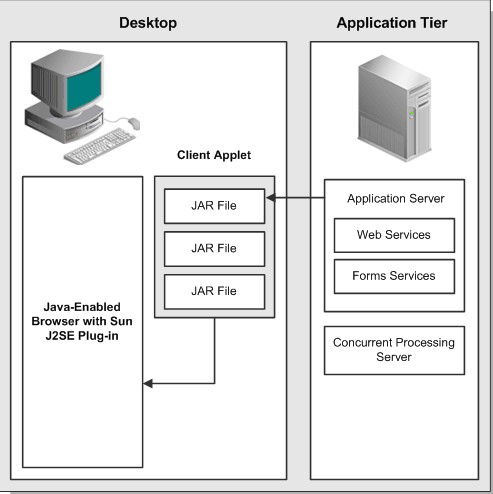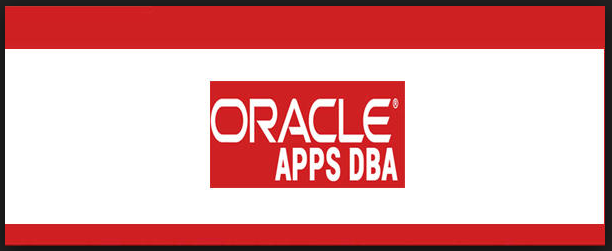INTRODUCTION TO ORACLE APPS DBA
Oracle APPS DBA:
What is Application Database?
The Database which is storing the data’s from application (say front end ) that is EBS (Enterprise Business suite) is said to be Application Database .
What is EBS?
Oracle E-Business Suite is one of Oracle Corp’s major product lines. Also known as Oracle EBS, it is an integrated set of business applications for automating customer relationship management (CRM), enterprise resource planning (ERP), supply chain management (SCM), human resource management (HRMS)etc. processes within organizations. This for Whole is Application
What is Database?
A database is collection of data’s That is in the form of objects.
Objects List
- Tables
- Views
- Synonyms
- Sequence
- Triggers
- Functions
- Packages
- Procedures
- Roles Etc.
These are Database Objects When the database is up and Running.
The Person Who is maintaining both application and database is APPS DBA.
Roles and Responsibilities Of Oracle APPS DBA
- Installation, configuration and upgrading of Oracle server software and related products.
- Starting and Stopping the application
- Monitoring the application related products like oacore,oafm apache etc.
- Bouncing apache,oacore,oafm if needed
- Establish and maintain backup and recovery policies and procedures.
- Take care of the Database design and implementation.
- Implement and maintain database security (create and maintain users and roles, assign privileges).
- Work as part of a team and provide 24×7 support when required
- Perform general technical trouble shooting and give consultation to development teams.
- Interface with Oracle Corporation for technical support.
- Patch Management and Version Control.
- Perform database tuning and performance monitoring.
- Perform application tuning and performance monitoring.
- Cloning DEV and TEST from PROD.
Prerequisites for Learning Oracle APPS DBA
- Good Knowledge in OS like Linux, IBM(UIX), Windows etc.as oracle software will be installed on these OS’s.
- Good Knowledge in sql and PlSQL.
- Very good understanding of Oracle core database architecture and concepts
- Oracle SQLNet configuration and working knowledge
- Knowledge on Concurrent managers
Daily activities are performed by the “Oracle Apps DBA” is mention below: –
There are mainly 4 types of roles an Oracle Apps DBA have :
Type 1: L1 Apps DBAs
- L1 Apps DBAs mainly involve in help desk activities such as:
- Answering calls
- Logging/updating tickets
- Interacting with L2 Apps DBAs on tasks to be completed
- Monitoring alerts
Type 2: L2 Apps DBAs
L2 Apps DBAs mainly work on daily/scheduled/ad-hoc activities such as:
- Code Migration Support to Functional Consultants
- Handling tickets raised by functional/technical/business users
- Handling Alerts raised by alert monitoring system from Database and applications
- Tablespace Reorg Activities to improve the performance/to reclaim the unused space
- Schema Reorg Activities to improve the performance
- Patch Analysis where there is a patch needs to be applied
- Patch Application as per schedule
- Cloning as per schedules
- Backups and issues related to them
- Query response time and other Performance Issues
- Work with Oracle Support by raising SRs on several issues
- Monitoring Standby Databases and resolve respective issues
- Regular database maintenance activities (tablespace management, datapump, purging logfiles……)
- Training L1 Apps DBAs to make them L2 Candidates.
L1 and L2 Apps DBAs are the main teams who will impact SLAs of a client
Type 3: L3 Apps DBAs
- L3 Apps DBAs mainly work on installation/setup related tasks such as:
- Work on issues which L2 couldn’t fix
- New Environments Build/Setups
- Designing Backup/Recovery policies
- Installing new Application environments
- Post-Installation Tasks of New environments
- Integrating E-Business Suite with other environments such as (SOA, OSB, OBIEE, OTM, IPM …)
- Work on integration issues
- Work on Cluster setups for both applications and databases
- Work on DMZ setups to E-Business Suite
- Work on Standby site setups for both applications and databases
- Interact with Network/OS teams on network setups and load balancer setups.
- Work on Parallel Concurrent Processing (PCP) Setups
- Fail-over capabilities testing of E-Business Suite and database
- Design Cloning strategies.
- Work on design related issues.
Setting up E-Business Suite with Oracle Access Manager/OID to achieve Single Sign-On (SSO) Capabilities
Training L2 team to make them L3 Candidates
Type 4: Architects
Architects are the ones who design systems from scratch. They mainly involve in:
- Attend Client Meetings to understand their expectations.
- Involve in Business User Meetings to understand their expectations.
- Design E-Business Suite Architecture with failover/failback capabilities.
- Design Clustering capabilities of E-Business Suite and databases.
- Design High availability of E-Business Suite and databases.
- Design hardware/capacity sizing.
- Helping L3 Team to achieve their targets and in understanding technologies.
- Conduct training sessions to the L3 team to get an understanding of system design.
- Fix any architectural related issues.
Work on integration options of E-Business Suite with other environments such as (SOA, OSB, OBIEE, OTM, IPM …)
Thanks ……………



